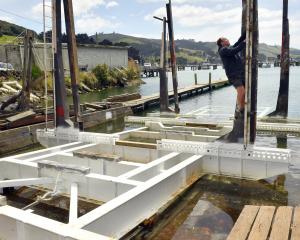
Dunedin woman Annette Churchill has recently done just that and she said using $6000 of her KiwiSaver account helped her out of a rut.
"I’m in a one-income family — my partner’s been out of work for a couple of years and he’s been unable to find work — so we got into some debt.
"We have two autistic children that also have ADHD as well. We got into a bit of debt with rent arrears so I used my KiwiSaver to fix up my rent arrears."
Miss Churchill was one of many New Zealanders who accessed their KiwiSaver accounts in April.
Inland Revenue figures show almost $14 million was taken out of KiwiSaver accounts in April through financial hardship claims, nearly double the amount taken out in April last year.
"It’s my money that I put in there so if it’s going to help me to get out of a financially bad situation then I’m going to do it.
She was hopeful she would not be in the same position again.
"As long as we can keep up with our regular payments for things, we should be OK."
She received budget advice before she took the KiwiSaver money out — one of the requirements for withdrawals.
"The budget advice people were more ‘let’s try and find other ways of getting around it,’ but other than getting more income into the household there realistically was no other option," she said.
She said there was extensive paperwork to make the withdrawal.
"You have to go in and write down and put all your bills that you have and get a copy of each thing. Then go to a JP [justice of the peace] and make sure they’re all initialled and cited and signed."
Her partner had previously used his KiwiSaver funds to pay for emergency dental work.
The data shows 1897 people raided their superannuation accounts in April for a total of $13.78million. That was a big jump on the 1361 people who took money out of their KiwiSaver accounts in April last year because of financial hardship.
The average amount also jumped significantly from $5544 per person to $7264.
The amount withdrawn in May was also higher at $12.95million compared with $9.35million in the previous May as more people took out larger amounts.
Dunedin Budget Advisory Service executive officer Andrew Henderson said he was not surprised by the surge of people accessing their KiwiSaver because they were struggling.
"As we have experienced with Covid-19, rainy days do come and unfortunately many Kiwis have been ill-prepared.
"Luckily many of us do have KiwiSaver that we can try to access if we are experiencing significant financial hardship."
But, he said, drawing from KiwiSaver could negatively affect that persons’ savings for a first home or retirement.
"... so this option does need to be considered carefully".
He recommended anyone withdrawing money from their KiwiSaver to meet a budget adviser so they were exploring all of their options.
"Pre-Covid the Commission for Financial Capability reported that in KiwiSaver withdrawal cases where a budget adviser was involved, 20% of hardship withdrawal applications were eventually avoided."
Mr Henderson also cited a recent report from the Financial Services Council, which found 70% of New Zealanders would not be able to meet basic financial commitments such as mortgage, rent and bills past a short period of time unemployed.
The survey also found more than a third of the public would not be able to pay mortgage or rent and bills beyond a month in unemployment.
"It is recommended that we have one to three months’ worth of savings behind us for a rainy day."
Massey University retirement savings expert Dr Claire Matthews expected hardship claims to rise again as more people lost their jobs through the economic downturn.
"I think there is a significant chance it will increase again. It will depend on what happens with the economy."
Dr Matthews said it often took time for the impact of an economic downturn to flow through to the wider workforce.
"That is why I am slightly surprised around the April figures. I thought it would have taken longer."
Dr Matthews urged those considering a hardship withdrawal to think twice.
"If your financial situation is really dire, it is appropriate. But it shouldn't be your first port of call."
People should consider alternatives such as a short-term loan from a reputable low-cost lender, cutting back on expenses and selling items to make money before tapping into their retirement savings, Dr Matthews said.
"Because it does have an impact down the track."
More than three million New Zealanders belong to KiwiSaver and have about $60 billion invested.
— Additional reporting The New Zealand Herald












